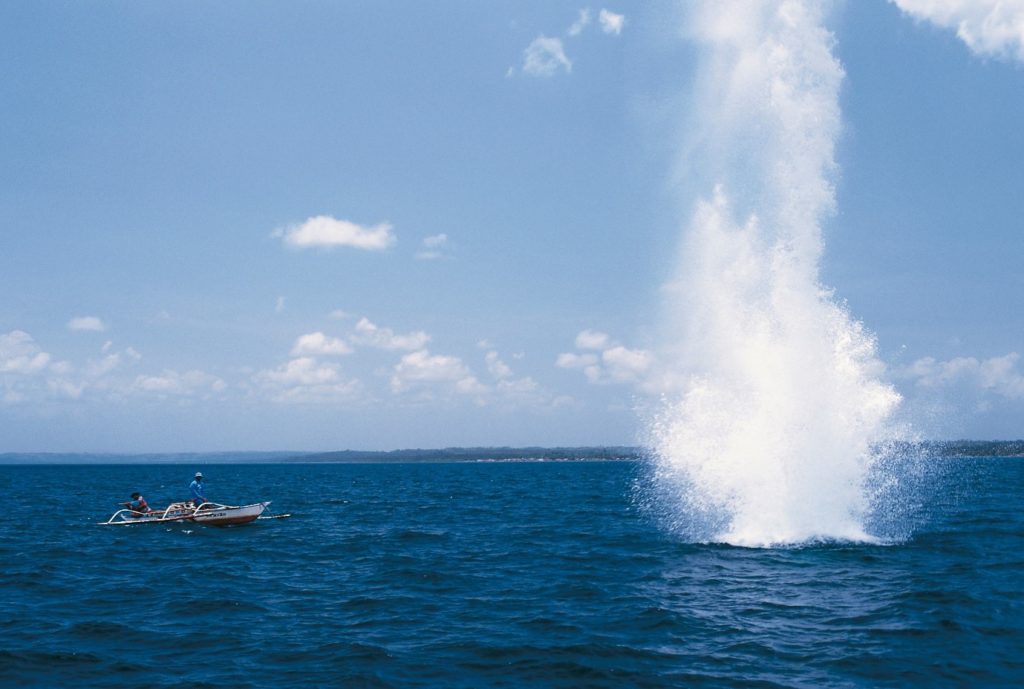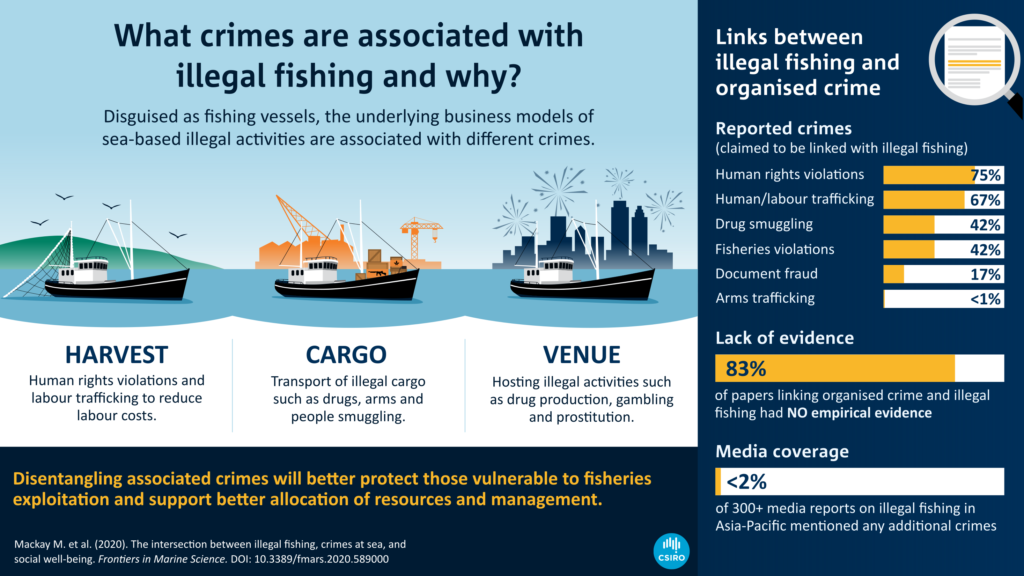
Counting fish: bomb fishing, a common method for illegal fishing, can have devastating impacts on sustainable fishing levels.
We know that illegal fishing is bad news. Each year, 26 million tonnes of fish are illegally caught. That’s equivalent to the weight of 3.7 million elephants! This has catastrophic impacts on sustainable fisheries management and the marine environment.
Illegal fishing is also associated with other crimes such as drug, human and arms trafficking.
But our new research reveals this isn’t the case.
Criminal waves out at sea
We used scientific literature reviews and media reports on illegal fishing from the last five years. And our research spanned 21 countries in the Asia-Pacific. It showed the main crimes associated with illegal fishing were violations of worker’s rights, forced labour or modern slavery.
Labour abuses showed up in 75 per cent of scientific papers and more than half of media reports on illegal fishing. But only 2 per cent of the media reports on illegal fishing included additional associated crimes. Only one article pertained to illegal fishing in Australian waters.
Our findings support efforts to protect those vulnerable to fisheries exploitation. This will enhance livelihoods, social well-being and the sustainability of global fisheries. By disentangling illegal fishing from other crimes, we can better focus on solutions to tackle it.
Reeling in illegal fishing and crime
Fisheries are one of the largest and oldest primary industries in the world. They provide an estimated 59.6 million people with jobs globally. But more than 30 per cent of global fisheries are overexploited.
Illegal fishing is incredibly challenging to identify, enforce and prosecute on the high seas. It can be time consuming and costly for responsible agencies, particularly for developing countries.
It occurs at small and large scales and puts pressure on marine ecosystems and marine life. And it significantly impacts economies. The estimated global annual economic loss is between $35 to $68 billion dollars.
We are using a range of technologies to tackle it. Our innovations include using machine learning, satellite data, remote cameras and underwater recording devices.

Infographic designed by Visual Knowledge.
Using research to fight crime
Recognising the consequences and prevalence of illegal fishing is important. But knowing how to deal with it will help to ensure sustainable fisheries management.
Our research fills a significant knowledge gap on illegal fishing activities and other crimes happening at sea. Fishers don’t smuggle on a major scale. Instead, they underpay workers, fish in prohibited areas and conduct other activities closely related to the core business of fishing. Therefore, our research addresses the interplay between illegal fishing and other crimes.
This information will help fisheries management and authorities allocate resources to improve fisheries operations. It also contributes to greater transparency for the fisheries supply chain.
This builds on our extensive research using artificial intelligence, new technologies and capacity building to assist government and industries across the world. This will help to ensure sustainable fisheries management and global access to seafood to meet growing protein demand.

